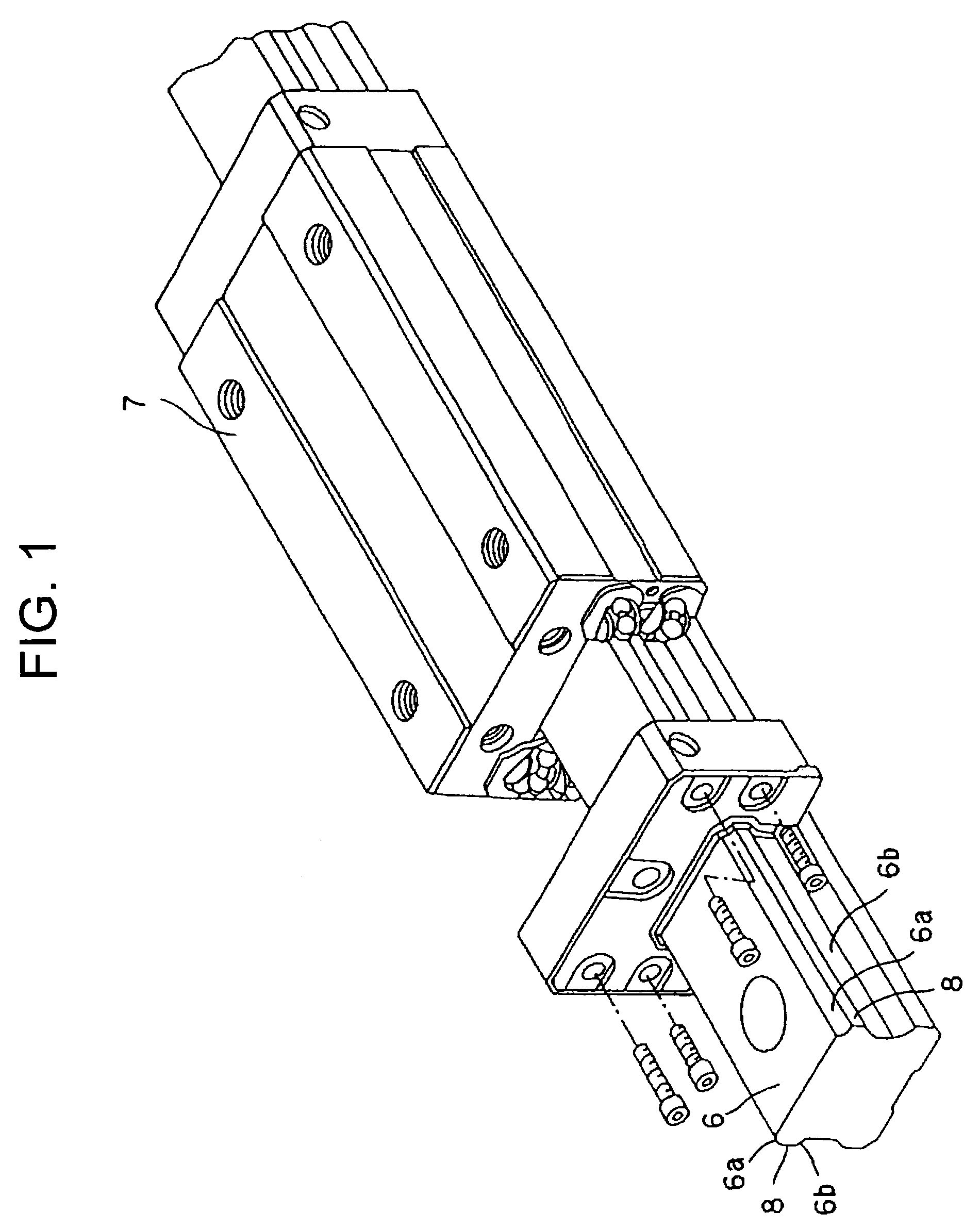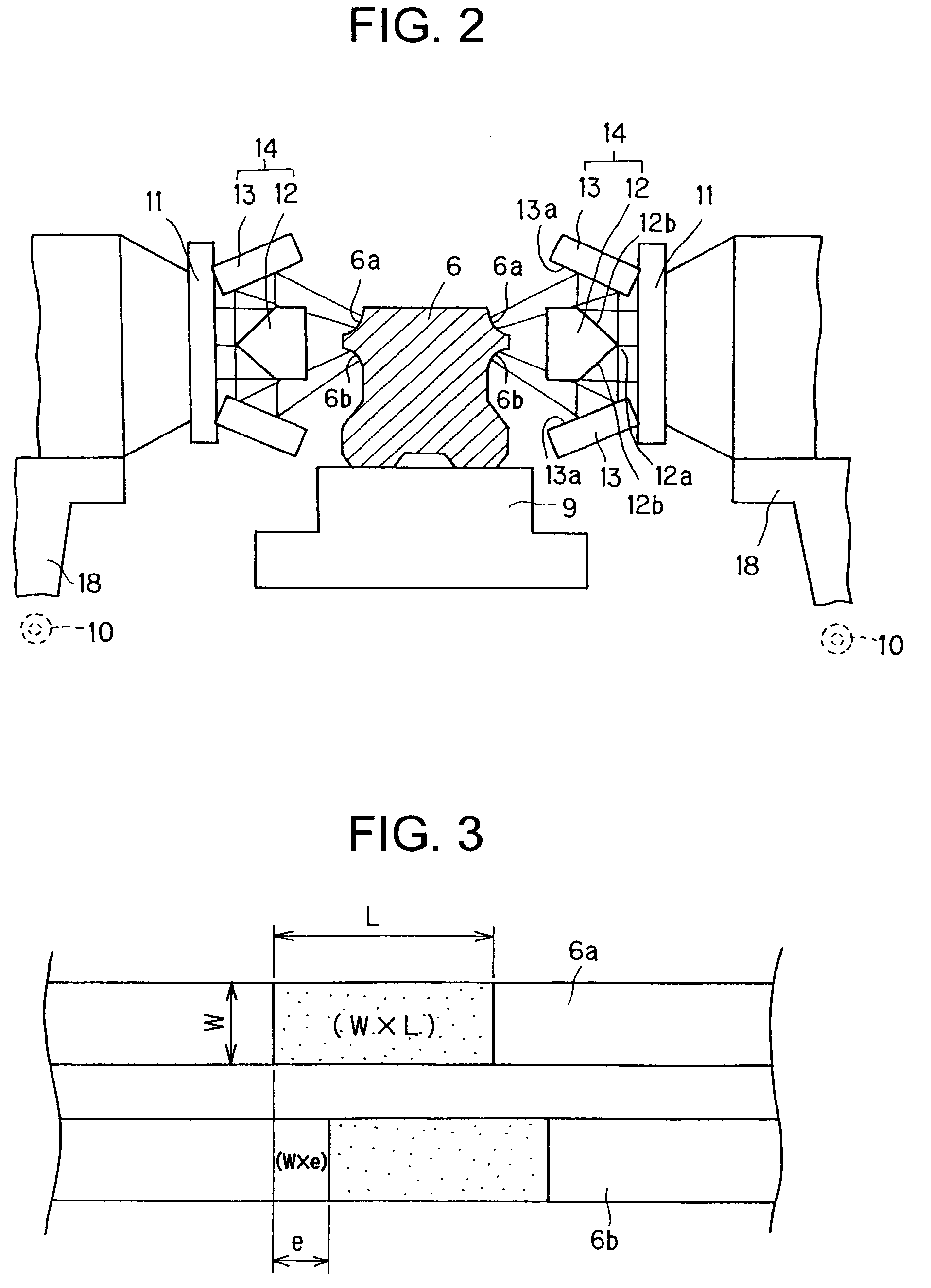Hardening method and apparatus utilizing laser beams
a laser beam and hardening method technology, applied in the field of hardening methods and equipment utilizing laser beams, can solve the problems of deterioration in hardening (hardened) quality, requiring a lot of time and labor, and reducing the service life of equipment, so as to eliminate defects or drawbacks.
- Summary
- Abstract
- Description
- Claims
- Application Information
AI Technical Summary
Benefits of technology
Problems solved by technology
Method used
Image
Examples
Embodiment Construction
[0034]Hardening method and apparatus utilizing laser beams according to the present invention are utilized for a hardening process in which the laser beam irradiates a raw or base material (which is called hereinlater merely “material”) having a plurality of rows of portions to be hardened which are influenced on each other. As such material, there will be listed, for example, a track member of a motion guide apparatus such as a liner guide, a ball spline or a ball screw.
[0035]With reference to FIG. 1 representing a linear guide, the linear guide comprises a track member 6 having an elongated scale and a movable member 7 relatively linearly movable with respect to the track member 6. The track member 6 is formed with a plurality of ball rolling grooves 6a, 6a, 6b, 6b as a plurality of rolling member rolling surfaces each extending in the longitudinal direction of the track member 6. On the other hand, the movable member 7 is formed with a plurality of ball circulation passages inclu...
PUM
| Property | Measurement | Unit |
|---|---|---|
| length | aaaaa | aaaaa |
| temperature | aaaaa | aaaaa |
| energy density | aaaaa | aaaaa |
Abstract
Description
Claims
Application Information
 Login to View More
Login to View More - R&D
- Intellectual Property
- Life Sciences
- Materials
- Tech Scout
- Unparalleled Data Quality
- Higher Quality Content
- 60% Fewer Hallucinations
Browse by: Latest US Patents, China's latest patents, Technical Efficacy Thesaurus, Application Domain, Technology Topic, Popular Technical Reports.
© 2025 PatSnap. All rights reserved.Legal|Privacy policy|Modern Slavery Act Transparency Statement|Sitemap|About US| Contact US: help@patsnap.com



